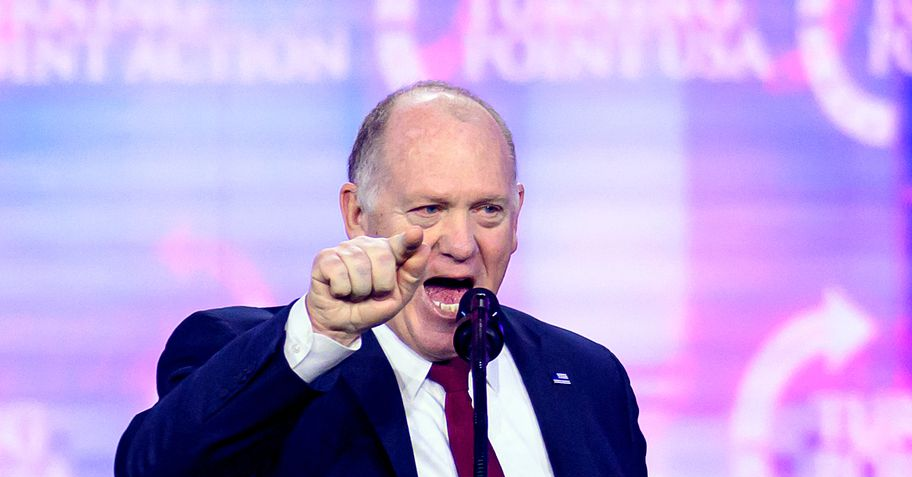The nation’s eyes are turning to Chicago this week as President Donald Trump, newly inaugurated for a second non-consecutive term, is expected to begin implementing plans for deportations with about 150 Immigration and Customs Enforcement supposedly deployed in Chicago. Chicago raids and arrests were to start the day after Trump’s inauguration, but Immigration and Customs Enforcement and its “border czar,” Tom Homan, are reconsidering in the wake of media leaks to the New York Times and Washington Post.
Sending multiple major enforcement operations to Chicago, a Democrat-led sanctuary city, would create the type of imagery to satiate the vocal anti-immigration camp within Trump’s base. The raids and the ensuing impact could separate families and federal agents are seeking cooperation from local officials. Both Illinois Gov. J.B. Pritzker and Chicago Mayor Brandon Johnson say they have no plans to assist ICE agents. There are about 400,000 undocumented immigrants in Illinois, which is about 3.2 percent of the state’s population, with about 277,000 of that total (65 percent) from Mexico. The effort reportedly would focus on those with criminal records or who face final deportation orders.
Undocumented workers make up a significant portion of the restaurant labor force. Over the weekend, Chicago restaurant managers began developing protocols for handling ICE visits (such as having I-9 documents and other worker verification documents on hand). Activists began flooding social media with information on individual rights and how to protect coworkers and employees during a raid, like marking off spaces as private to prevent agents from entering.
I’m in Chicago where immigration raids are rumored. A restaurant owner just broke down crying, she lost 30% of her clientele, they’re staying indoors. “Esto se va a poner feo.” whether there are raids here or not the $ blow, fear is already here. And people say that’s the point.
— Jasmine Garsd Garcia (@JasGarsd) January 20, 2025
Even if the raids have been postponed, the threats are having an impact. Rumors began swirling on Monday, January 20, that ICE agents showed up at Leña Brava and its sibling brewpub, Cruz Blanca — a pair of neighboring Mexican restaurants along Randolph Restaurant Row in West Loop. As social media posts continued to spread the information, a worker at the restaurant tells Eater that the rumor was false. However, restaurant management worries that making any official public statement would paint a target on their backs. Rumors about raids aren’t anything new to immigrant communities, but they’re having a different impact a day after a new president took office.
Sam Sanchez, a veteran Chicago restaurateur says he foresees a future when Hispanic restaurant workers — regardless of legal status — will “stay home because they don’t want to be harassed.” Workers won’t want to deal with raids and proving their citizenship, Sanchez says. These concerns would extend in the future toward any efforts to end birthright citizenship, with citizens needing to prove their parents’ immigration status. On Tuesday morning, January 21, in Chicago’s Little Village neighborhood, one community group claims foot traffic has dropped by 50 percent due to the threats in the hub for Mexican restaurants and stores, according to Bloomberg.
Restaurant owners are already seeing a drop in business with customers staying home due to Chicago’s subzero temperatures. Trump’s threats aren’t making it any easier to sustain a small business.
The restaurant industry will collapse without undocumented workers, says Sanchez, a past chairman of the Illinois Restaurant Association who made national headlines for admitting he voted for Trump, something few admit in Chicago, a stronghold for Democrats. Sanchez says a shift was needed as he predicted that the GOP would gain control of Congress, the Supreme Court, and the Executive branches. He believes a bipartisan effort is necessary to solve the issue.
“I voted for Trump because I needed a seat,” Sanchez says, adding that he’s been focused on immigration reform and public safety.
Sanchez met with Homan in December and urges Democratic elected officials in Chicago to work with the GOP on compromises that could protect undocumented immigrants. Politicians need to have a better understanding of what raids could do to the hospitality sector, one of the country’s largest job creators, Sanchez adds.
:no_upscale()/cdn.vox-cdn.com/uploads/chorus_asset/file/25840424/2193782491.jpg)
Restaurant owners in and out of the Mexican community hold respect for Sanchez who’s arguably best known for John Barleycorn, a mini-chain of bars popular in the ’90s with locations near Wrigley Field and in Lincoln Park. While Barleycorn has come and gone, Sanchez and his daughters have opened new bars including Moe’s Cantina, Old Crow, Tree House, and La Luna; he’s a native Mexican who moved to Chicago in the mid-’80s. Voting for Trump doesn’t represent a drastic change in perspective, says Sanchez, who also chaired Democrat Lori Lightfoot’s finance committee; he feels the Democratic party has moved too far to the left. He’s angered by how Democrats handled the migrant crisis in Chicago — a crisis created by Republican Gov. Greg Abbott of Texas who bused people into Chicago. Sanchez says he wished Democrats, including Mayor Johnson, sued the federal government for funds rather than redistribute money from local budgets that were earmarked for the underprivileged on the West and South sides.
Sanchez specifically says Mexican voters like him have always been conservative, focused on work, family, religion, and being able to purchase their own homes. He’s among a cohort of like-minded Latino Trump supporters advocating for bipartisan immigration reform, prioritizing border security, and providing legal status for undocumented immigrants brought to the United States as children who are the recipients of the Obama-era Deferred Action for Childhood Arrivals (DACA). He was in D.C. on Monday during the inauguration and has been meeting with Republican officials lobbying for policies including the Dignity Act, a bill introduced in 2023 that would provide a path toward citizenship for some undocumented immigrants, including DREAMers.
“I did put a target on my back,” Sanchez says. “And I know that.”
Sign up for our newsletter.





